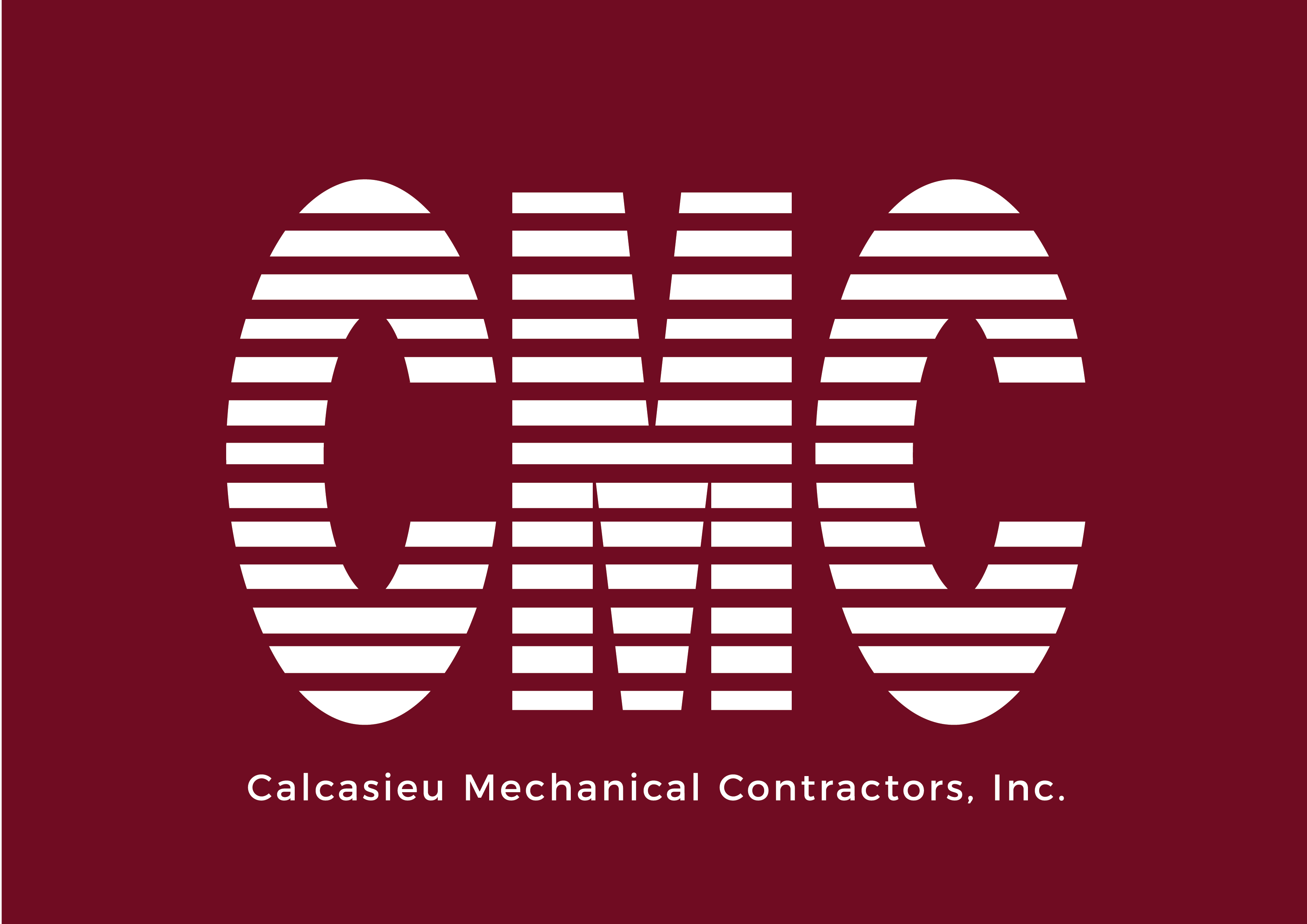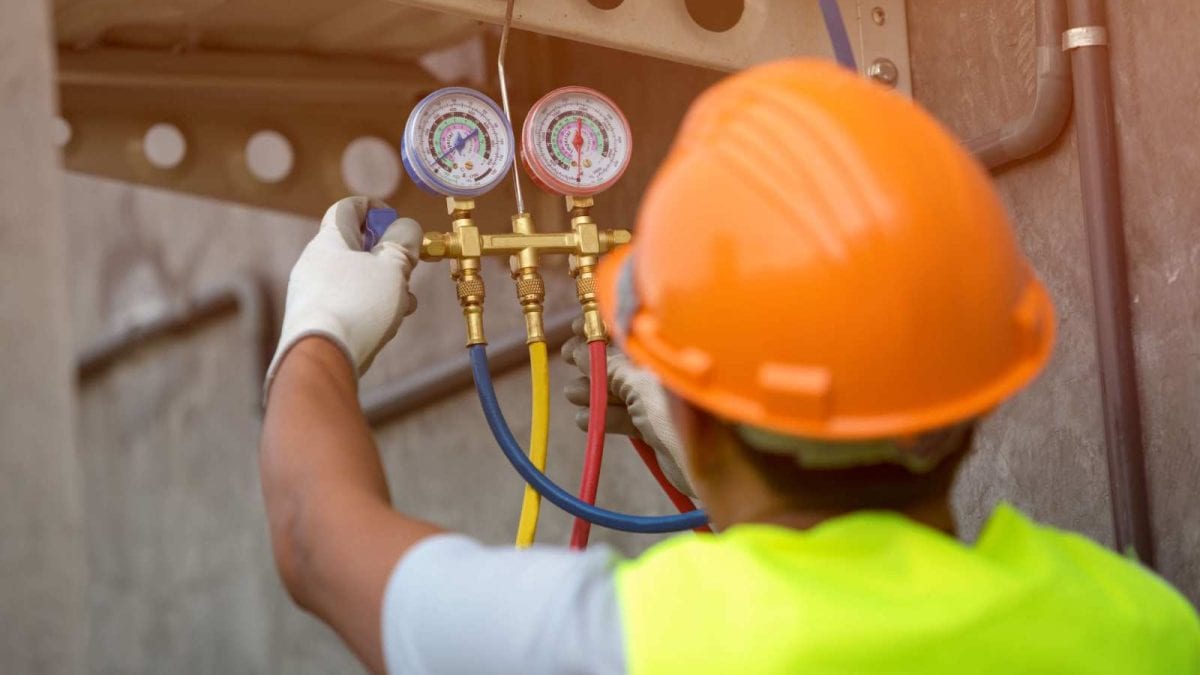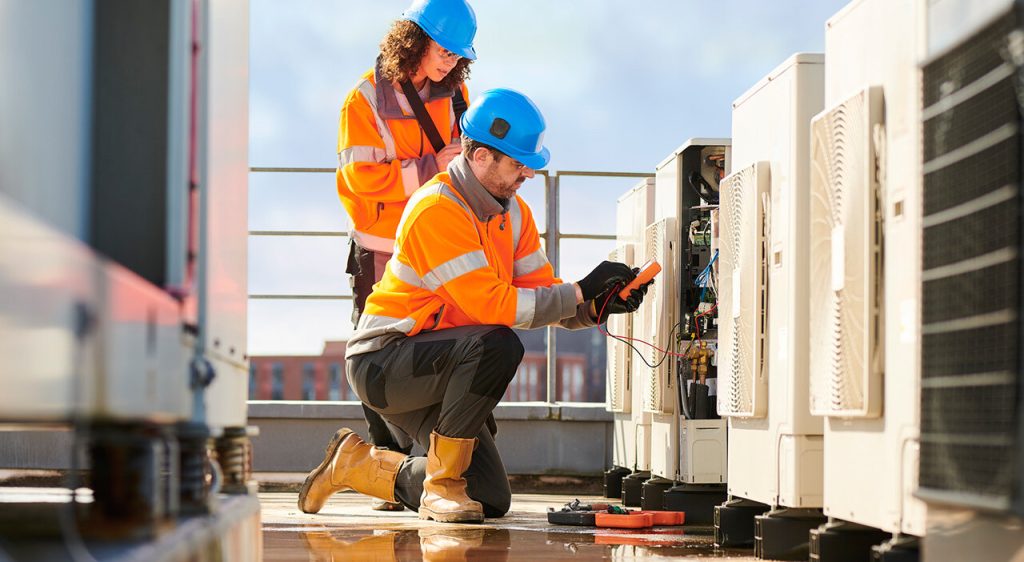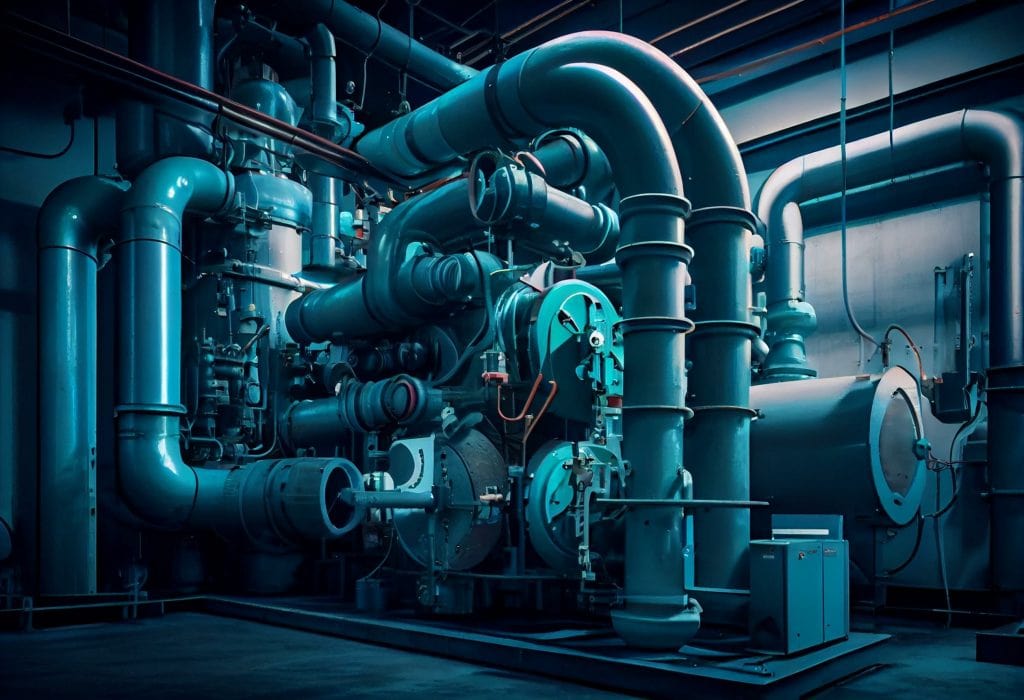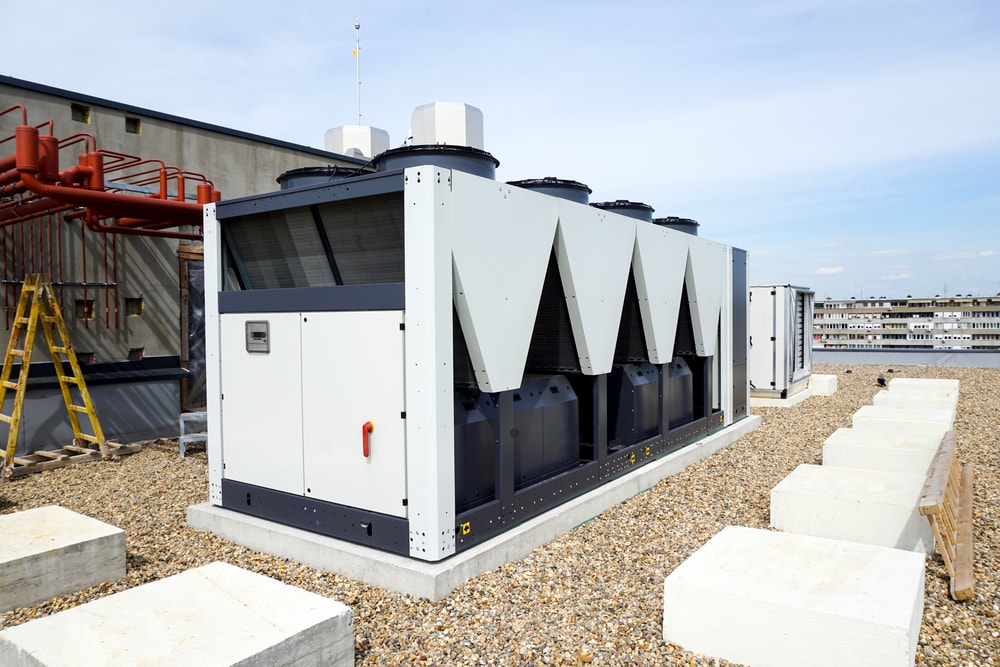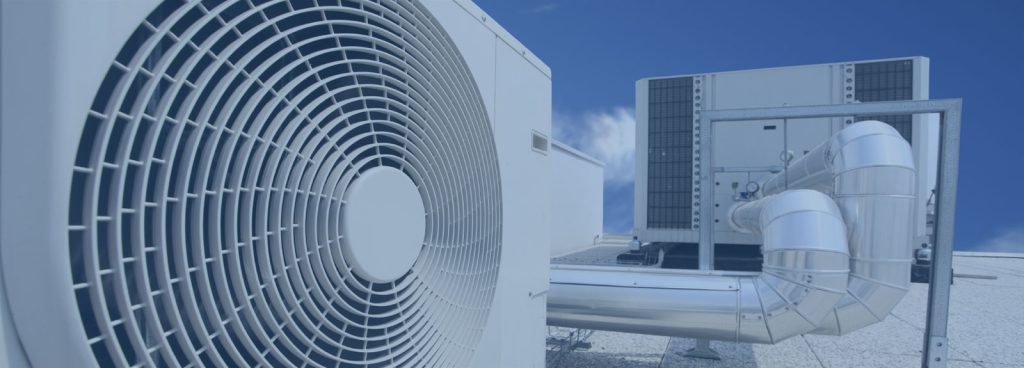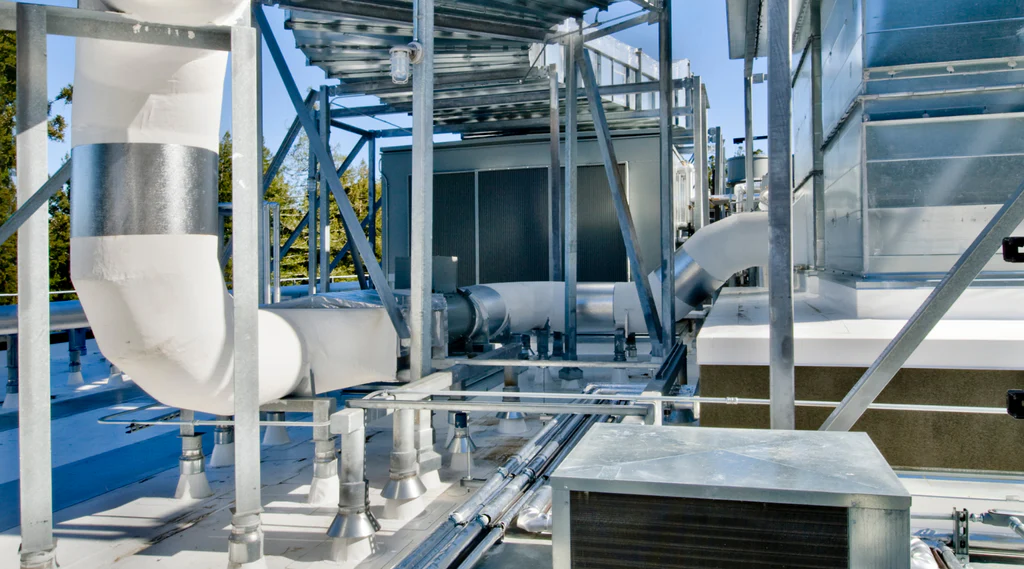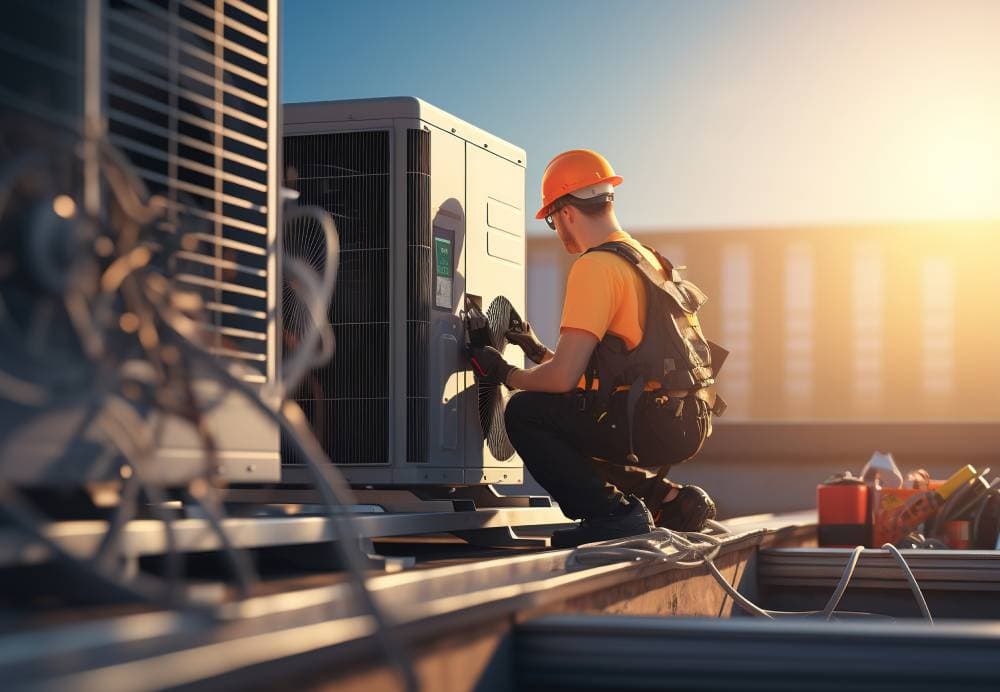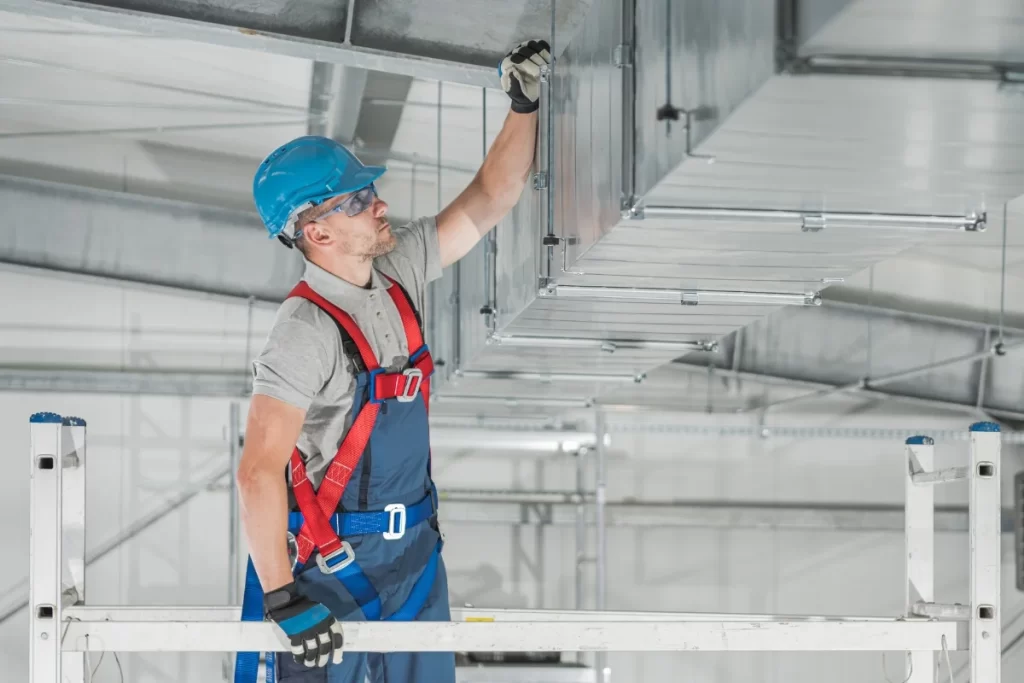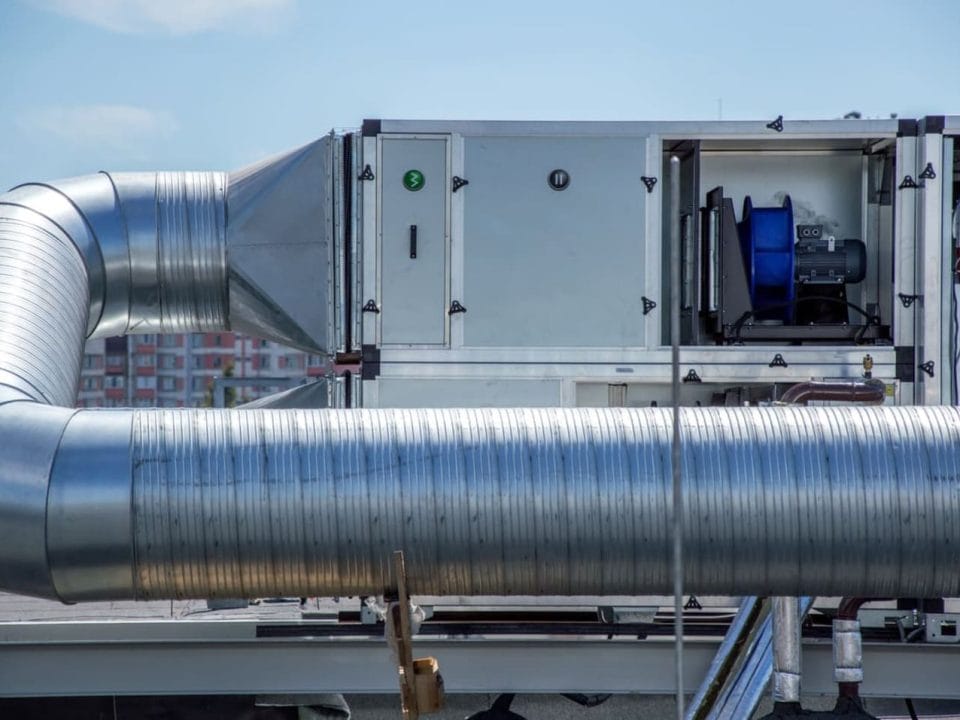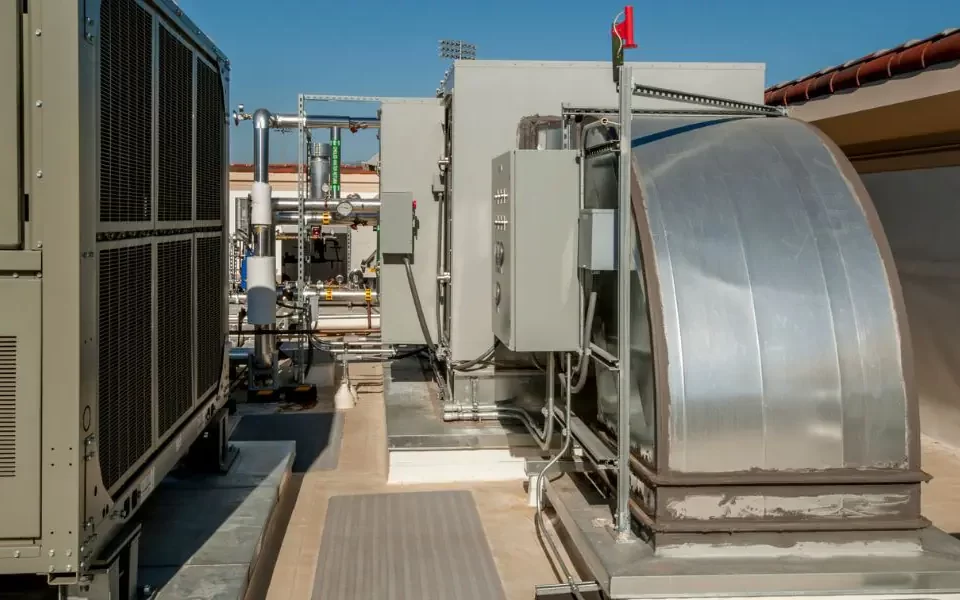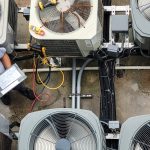
Premier Solutions for Commercial HVAC Repairs and Maintenance Services
June 25, 2024
Optimizing Building Efficiency With Expert Commercial HVAC Services
July 23, 2024Managing an industrial environment comes with unique challenges, and maintaining a comfortable climate is a pivotal aspect that can’t be ignored. A trustworthy company becomes the linchpin for preserving the performance of air conditioning systems, warding off air pollution, ensuring timely commercial heating repairs, and overseeing meticulous air conditioning installations. Unfortunately, the sheer complexity of industrial HVAC systems means regular maintenance can often slip through the cracks, leading to unforeseen breakdowns and inefficiencies. Balancing the performance, energy efficiency, and compliance trifecta necessitates a well-orchestrated approach. Keep reading to unravel the subtle art of managing industrial HVAC demands with finesse and strategic insight.
Premier Solutions by Top HVAC Companies for Industrial Systems
As an authority in the HVAC landscape, I’ve realized that a one-size-fits-all solution rarely meets all operational demands, especially in industrial setups. A careful expert assessment is the bedrock I rely on to engineer tailored HVAC solutions that fit your budget and align seamlessly with your current facilities. My focus extends to selecting the optimal refrigerant and components that will harmonize with your existing commercial HVAC systems, ensuring a bespoke fit that promotes energy efficiency and sustainability. Equally critical to these implementations is my commitment to providing steadfast maintenance and support, ensuring that your industrial air conditioning needs are met tirelessly, day and night.
Expert Assessment and Tailored Solutions
In my professional practice, I’ve learned that evaluating an industrial environment’s specific commercial heating requirements is a critical first step before proposing any commercial HVAC installation. This detailed examination allows me to integrate the most effective components, such as a reliable belt system or a precision humidifier, ensuring an optimized heating solution supports your operations.
Another essential aspect I address is optimizing the seasonal energy efficiency ratio (SEER). During my expert assessment, I focus on customizing solutions that offer a favorable SEER, which is a testament to high-performance industrial air conditioning systems that promote cost and energy savings over the long term.
Integration With Existing Industrial Systems
An acute awareness of indoor air quality is essential when integrating new air conditioning systems with industrial operations. I’m meticulous about ensuring that additions or upgrades work harmoniously with your existing HVAC, adeptly preventing any potential air quality decrease or leaks resulting from incompatible installations.
Proactive HVAC Maintenance: A Key to Cost-Efficiency and Comfort
Optimizing for Energy Efficiency and Sustainability
I’ve observed firsthand that implementing brand-aligned air conditioning systems can be a game-changer for industrial spaces. Trane products frequently lead in this segment. These systems are crafted for resilience and efficiency, standing up to the rigorous demands of a varied climate while delivering consistent performance benefits to the underlying operations.
Ensuring that each industrial air conditioning system meets elevated energy efficiency and environmental sustainability standards is a cornerstone. My active engagement with advancements in HVAC technology facilitates the introduction of Trane systems that exceed performance expectations and contribute positively to long-term sustainability efforts.
| Criterion | Analysis | Impact |
|---|---|---|
| Brand Compatibility | Trane air conditioning systems synergize with the requirements of Texan climates. | Enhanced efficiency and reliability in industrial environments. |
| Sustainability | Assessment of energy efficiency to identify optimal Trane solutions. | Lower operational costs and reduced environmental footprint for Texas industries. |
Round-the-clock maintenance and Support
Maintaining the integrity of a commercial property‘s heating and cooling infrastructure is paramount; that’s where our expertise and reliability come in. Our commitment is to ensure your heating system, including sophisticated heat pumps, receives complete maintenance and is supported around the clock, minimizing the risk of operational downtime that can affect your business continuity.
We stand ready to respond swiftly to any issues that may arise, be it an unexpected heat pump malfunction or the need for urgent air conditioner repair. Our proactive approach ensures your heating systems receive the required attention at the slightest hint of a problem, providing you with peace of mind and the assurance of continuous, efficient operation.
Comprehensive Guide to Commercial AC Repair: Your Roadmap to Operational Continuity
In my line of work, navigating the complexities of industrial air conditioning systems is a day-to-day undertaking. Clients frequently encounter a host of typical stumbling blocks, ranging from persistent noise emanating from their pump to fluctuations in performance attributed to a faltering condenser. Approaching each case with a critical eye, I guide them through initial review procedures before even considering placing that call to a professional. It’s about knowing when a simple reset can resolve an issue, contrasting with when expert hands are needed to delve into furnace or boiler intricacies. Selecting a service provider comes next, an exercise in matching expertise with system needs, all to ensure that downtime is kept to an absolute minimum. It’s this precise and responsible handholding through the process of expert repairs that upholds operational continuity in the industrial sector.
Identifying Common Issues in Industrial AC Units
During my routine examinations for commercial HVAC services, I’ve uncovered that wear and tear are regular culprits causing inefficiencies in industrial air conditioning units. A common telltale sign is inconsistent cooling, which prompts a thorough inspection by a seasoned technician to pinpoint the compromised components needing air conditioning repair.
A faulty thermostat can often fly under the radar, misleadingly pointing to issues other than wear and tear. Detecting this requires a trained eye; my experience enables me to quickly diagnose thermostat anomalies and ensure they’re accurately addressed during air conditioning repair for uninterrupted climate control within industrial premises.
Steps to Take Before Calling a Professional
Before you lift the phone to summon a professional for commercial AC repair, it’s sensible to perform some preliminary checks: inspect your system for apparent signs of trouble, like pooling water near the unit, or listen for out-of-the-ordinary noises that could point to a stressed compressor or other critical components.
Simple interventions prevent an unnecessary HVAC installation call-out; take a moment to verify if the thermostat settings are correct and reset breakers that may have tripped. Sometimes, a unit grappling with heat management needs a system restart or filter change to restore functionality:
- Check the proximity of water leakage, which could signal an issue.
- Listen acutely for sounds indicating compressor malfunction.
- Assess responsiveness to changes in thermostat settings.
- Execute a power cycle, including checking breakers, to see if issues persist.
How to Choose the Right Service Provider
Selecting the ideal provider for HVAC services requires diligent research and vetting for expertise in heating repair and air conditioning services. I always recommend seeking testimonials and case studies from similar industrial projects to gauge a company‘s ability to handle complex HVAC repair scenarios effectively.
Conducting a thorough inspection of credentials and certifications is also a critical step toward hiring a trustworthy service provider. It is vital to confirm their proven track record in delivering high-quality HVAC services and ensure that competent professionals address your heating repair needs.
Ensuring Minimal Downtime With Expert Repairs
Quick resolution is critical for minimizing downtime, and my strategy encompasses this reality. If an evaporative cooler starts faltering, an immediate response can circumvent extensive interruptions to operations. That’s why my approach to commercial HVAC maintenance hinges on rapid diagnostics and even swifter repair execution, enabling facilities to resume normal function with minimal delay.
The diligence I exercise in selecting HVAC service providers stems from understanding the impact that timely repairs can have on industrial productivity. Encouraging clients to request quotes from reputable companies recognized by the Better Business Bureau ensures they engage with vetted professionals poised to address their HVAC issues proficiently and expediently.
The Ultimate Commercial HVAC Installation Process
Installing a commercial HVAC system requires measured steps to ensure the final setup meets and exceeds operational expectations. Each phase is pivotal, from the vital initial consultation that lays down the blueprint for system design to the meticulous selection of the suitable air conditioning unit. My expertise guides clients through the rigorous installation process with a stringent eye on compliance and best practices that safeguard energy efficiency. Post-installation, I champion a comprehensive maintenance schedule that is pivotal to prolonging the unit’s lifespan while minimizing the need for conditioning repair. As someone entrenched in the nuances of commercial HVAC service, I understand the complexity and importance of each step in crafting systems that stand as bastions of climate control within the industrial sector.
Initial Consultation and System Design
My approach to installing commercial HVAC begins with a comprehensive initial consultation that delves into your needs, including building automation integration and future commercial HVAC repair considerations. This step is where your complex requirements become the foundation for a tailor-made air conditioning system design that ensures optimal performance for air conditioning commercial spaces.
Emergencies wait for no one, so we established a solid framework for emergency service availability during our first meeting. I prioritize resilience and responsiveness in my designs, ensuring that the air conditioning systems are robust and swiftly serviceable, minimizing operational downtime in your commercial endeavors.
Choosing the Right Commercial AC Unit
Selecting the ideal commercial AC unit is pivotal. It must align with the scale of your property and offer pronounced resilience against emergencies like power surges. An air conditioning system with a robust circuit breaker design reduces the risk of water damage and electrical mishaps, reinforcing its operational integrity and protecting your property.
Moreover, the longevity of an air conditioning unit is of utmost concern; therefore, I advocate for systems backed by comprehensive warranty offers. This foresight ensures that discrepancies or malfunctions can be addressed without delay or additional expense, safeguarding your investment and providing uninterrupted service.
| Aspect | Consideration | Benefit |
|---|---|---|
| Circuit Breaker | Robust design to handle surges | Minimized the risk of electrical issues and water damage |
| Warranty | Comprehensive coverage for the AC unit | Protected investment and assured continuity of operation |
Installation Best Practices and Compliance
Adherence to best practices is at the core of every commercial air conditioner installation I oversee, where the climate demands performance. Ensuring that every air filter is correctly fitted and functioning at the highest standard is critical to my compliance procedures, securing the air quality for the customer‘s facility.
Post-Installation Checks and Maintenance Schedule
After installing a commercial air conditioner, I immediately conduct comprehensive checks. This involves scrutinizing the ductwork for efficiency and ensuring the roof unit operates flawlessly, contributing to a high-performing, resilient HVAC system against rough weather conditions.
Maintaining a stringent post-installation schedule is essential for preserving the integrity of quality air conditioning systems. Regularly assessing the internal components and the exterior support structures safeguards against degradation and guarantees seamless operation long after the initial setup.
How to Ensure Your Industrial AC System Is Energy Efficient
The lifespan of industrial air conditioning systems hinges heavily on diligent care and methodical enhancements designed to boost efficiency. Emphasizing regular maintenance is critical for prolonging the system’s life expectancy and preserving the functionality of crucial components, like the evaporator coil. Additionally, as technology evolves, property owners can significantly benefit from upgrading to energy-efficient models, translating to significant cost savings and reduced environmental impact. Another strategic move to optimize performance involves integrating smart therapeutics and controls, which offer precise climate management while minimizing unnecessary energy expenditure. Tackling these areas with an informed perspective ensures that the robust plumbing of resources into an AC system yields the best return on investment.
Regular Maintenance and Its Importance
Maintaining the peak efficiency of an industrial air conditioning system is non-negotiable. Scheduled maintenance is the silent engine that ensures every part of your HVAC operates flawlessly, staving off energy wastage and reducing the frequency of costly breakdowns.
From my experience, regular checks — particularly of sensitive components like air filters and coils — are fundamental to avoiding energy loss. A more efficient, clean system translates directly into energy savings and an extended service life for industrial air conditioning units.
Upgrading to Energy-Efficient Models
Transitioning to energy-efficient models is a forward-thinking move for any industrial setup. These cutting-edge units are designed to reduce energy consumption substantially, translating to lower utility bills and a smaller carbon footprint.
By opting for the latest in HVAC technology, industries benefit from advanced features like variable speed compressors and smart thermostat controls, which optimize energy use without compromising climate control precision.
- Varied compressor speeds adjust power consumption in response to cooling demand, enhancing efficiency.
- Smart thermostats offer precise temperature management, saving energy when whole cooling is unnecessary.
Moreover, newer models’ high SEER (Seasonal Energy Efficiency Ratio) ratings gauge their superior performance and sustainability. Investing in these modern systems can lead to significant operational cost savings over time.
Incorporating Smart Thermostats and Controls
Applying smart thermostats and controls is equivalent to piloting a ship with the utmost precision; these intelligent systems adjust indoor temperatures with acute responsiveness. Utilizing such advanced controls in industrial air conditioning systems streamlines energy use and provides convenience and analytics beneficial for strategic energy management.
I’ve witnessed a notable enhancement in system efficiency when integrating smart technologies. This upgrade is more than a mere convenience—it’s a strategic shift. By adopting intuitive controls, operations can monitor and adjust for peak performance in real-time, ensuring energy use aligns with on-site needs, thereby reducing waste and optimizing overall expenditure.
Addressing Indoor Air Quality in Large Industrial Spaces
Maintaining superior indoor air quality in expansive industrial spaces is not just a matter of comfort; it’s a critical health and safety concern that directly affects worker well-being and productivity. As an experienced professional in the intricacies of industrial environments, I know all too well the ramifications of neglected air quality. I aim to transform cavernous facilities into bastions of clean air through advanced filtration systems, strategic ventilation design, and rigorous adherence to air quality standards. Regular monitoring and proactive maintenance of HVAC systems are essential in this quest, forming the backbone of sustainable, healthy working conditions. This ensures the delivery of consistently pure air, safeguarding the health of employees and the integrity of products.
The Importance of Indoor Air Quality
Acknowledging the critical role of indoor air quality in industrial environments is central to my work. My dealings with various industries have solidified my understanding that the air employees breathe directly affects their health and, by extension, their productivity. Therefore, guaranteeing clean air through appropriate HVAC solutions is not just about regulatory adherence; it’s about fostering a conducive work environment.
My approach to designing air conditioning systems always includes a strategy for maintaining pristine air quality. High-grade industrial filtration systems, a cornerstone of my installations, serve as the first line of defense against airborne contaminants, ensuring the health and safety of every individual on the factory floor or within an industrial complex.
Solutions for Improving Air Quality
The remedy for inadequate air quality in industrial environments is multifaceted, driven by a partnership between technological innovation and strategic air management practices. My role involves introducing cutting-edge air filtration systems that capture a broad spectrum of particulates and designing tailored ventilation schemes that circulate and refresh the air, maintaining the health of the workspace.
Engaging with the challenge of air sterilization, my expertise lends itself to deploying ultraviolet light systems known for neutralizing airborne pathogens. These ultraviolet solutions, installed within the HVAC infrastructure, work silently yet effectively, purifying the circulating air and drastically reducing the risk of contamination and spreading airborne illnesses.
Monitoring and Maintaining Air Quality Standards
In my practice, vigilant monitoring of industrial air conditioning systems is a vital service I provide to ensure that air quality standards are not only met but consistently exceeded. Proactive measures, including regular system evaluations and real-time air quality monitoring, are essential to affirm the workspace environment’s health and safety.
Moving beyond mere compliance, I actively secure and maintain superior air quality standards through advanced diagnostic techniques. I can detect even the slightest deviations by applying sophisticated real-time monitoring tools that assess air quality, triggering immediate corrective actions to uphold a clean and safe industrial atmosphere.
Navigating Industry Compliance and Regulations for HVAC Systems
Navigating the complex maze of industry compliance and regulations in the air conditioning world is an essential part of my role as an HVAC specialist. Grasping local and federal regulations ensures that the industrial systems I deal with adhere to necessary safety standards while optimizing performance. My approach is to furnish businesses with a comprehensive compliance checklist specific to their HVAC system, mitigating risks and aligning with legal requirements. The ramifications of non-compliance are significant, affecting everything from operational efficiency to a business’s bottom line and reputation. Understanding the stakes, I prioritize keeping each industrial air conditioning system operational and compliant.
Understanding Local and Federal Regulations
I stay abreast of the evolving framework of HVAC regulations, ensuring that any advice or installation complies with local building codes and federal environmental laws. Thoroughly versed in the protocols that govern industrial air conditioning, I direct my clients through the nuanced landscape of compliance, seamlessly transitioning from outdated systems to modern, regulation-conformant units.
My professional practice embodies a staunch commitment to equipping industrial spaces with HVAC systems that pass stringent inspections and excel in efficiency and safety. I meticulously integrate regulatory requirements with every project, from the Clean Air Act to Energy Star ratings, delivering superior air conditioning solutions that meet the highest legal and performance criteria.
Compliance Checklist for Your HVAC System
In my line of work, I’ve developed a refined compliance checklist to ensure every HVAC system I install or maintain meets industry standards. This checklist serves as an overarching guide to verify that every installation and repair follows the latest safety and performance protocols, avoiding any lapses that could lead to costly penalties or system failures.
I review each system against this checklist, assessing crucial factors such as proper sealing and insulation, system calibration, and the integrity of electrical connections. Through this rigorous evaluation, my clients are assured that their industrial air conditioning systems are compliant and operate within regulatory expectations, safeguarding their operations against compliance infringements.\
How Non-Compliance Affects Your Business
Stepping outside the bounds of regulatory compliance can result in severe penalties for any business, including fines, litigation, or even a halt to operations. Such missteps are not merely regulatory hurdles; they impact a company‘s financial health and tarnish its reputation amongst consumers and partners.
Moreover, operating with a non-compliant HVAC system risks the system’s longevity and efficiency, potentially leading to escalated energy costs and compromised air quality. This negligence can cause avoidable strain on resources, carving a dent in the business’s operational budget and undermining employee wellbeing and productivity.
Find the Right Commercial AC Repair Services Near You
Scouring the market for a dependable commercial AC repair service proves crucial for the uninterrupted operation of industrial air conditioning systems. My approach leverages a combination of online directories and resources to compile a list of potential HVAC experts. Peer reviews and customer testimonials are invaluable, offering insights into the quality of service and customer satisfaction. These initial steps set the stage for informed decision-making and prevent the pitfall of enlisting underqualified technicians. Based on years of industry experience, my tips direct you to select the best HVAC service provider that aligns with specific needs, operates with transparent practices, and guarantees a partnership characterized by reliability and expertise.
Using Online Directories and Resources
Embarking on a mission to select a sterling commercial AC repair service begins with harnessing the power of the internet. My approach involves utilizing online directories and resource pools, which collectively furnish a comprehensive sampling of service providers within a given area. Notations of expertise, areas of specialty, and geographical coverage are among the key details I extract from these online repositories.
Customer feedback and ratings hosted on these platforms serve as a compass guiding me to reputable specialists. I prioritize those services with consistently high ratings and reviews, delineating their track record for excellence and reliability in industrial air conditioning repair. I ensure my recommendations reflect only the top-tier service providers available.
Evaluating Reviews and Testimonials
Assessing reviews and testimonials is vital to my filtering process when pinpointing adept commercial AC repair services. Through the lens of customer experience, I glimpse the provider’s reliability, problem-solving capabilities, and client communication ethos.
Collecting firsthand narratives from these testimonials offers an authentic gauge of a service provider’s reputation and quality of work. This step is instrumental to my recommendation process, ensuring that industrial entities align with services that have proven their merit through consistent customer satisfaction:
- Examine the depth and substance of customer feedback to assess satisfaction levels.
- Scrutinize recurring compliments or complaints for patterns that indicate service consistency.
Tips for Selecting the Best HVAC Service Provider
The cornerstone of finding an exceptional HVAC service provider lies in their responsiveness and the breadth of their expertise. Look for professionals who can confidently handle the diverse challenges of industrial air conditioning systems and communicate clear, actionable advice that caters to your specific needs.
A testament to a good HVAC service provider is their willingness to offer a transparent quote and a comprehensive outline of the proposed services. Trustworthy technicians who provide a detailed breakdown of costs and timelines demonstrate a commitment to accountability, which is crucial for a long-term service relationship.
Tailoring air conditioning solutions to specific industrial needs ensures operational efficiency, cost savings, and compliance with energy and safety standards. Regular maintenance and adopting energy-efficient models with advanced smart controls greatly enhance system longevity while conserving energy. Mitigating indoor air quality issues remains paramount, directly impacting worker health and productivity in industrial spaces. Expertise in HVAC system compliance further protects businesses from legal ramifications and maintains the integrity and reputation of the company.

Hailing from the picturesque town of Lake Charles, Louisiana, Jim Blanchard stands as an exemplar in commercial HVAC installation and services. As President of Calcasieu Mechanical, he has leveraged his deep industry knowledge and innovative strategies to establish the company as a leading regional service provider. Under Jim’s leadership, Calcasieu Mechanical has expanded its portfolio of high-quality services and earned the trust and respect of businesses throughout Louisiana. The company’s commitment to excellence, reflected in its endeavors, stems from Jim’s dedication to ensuring every project meets and exceeds client expectations.
